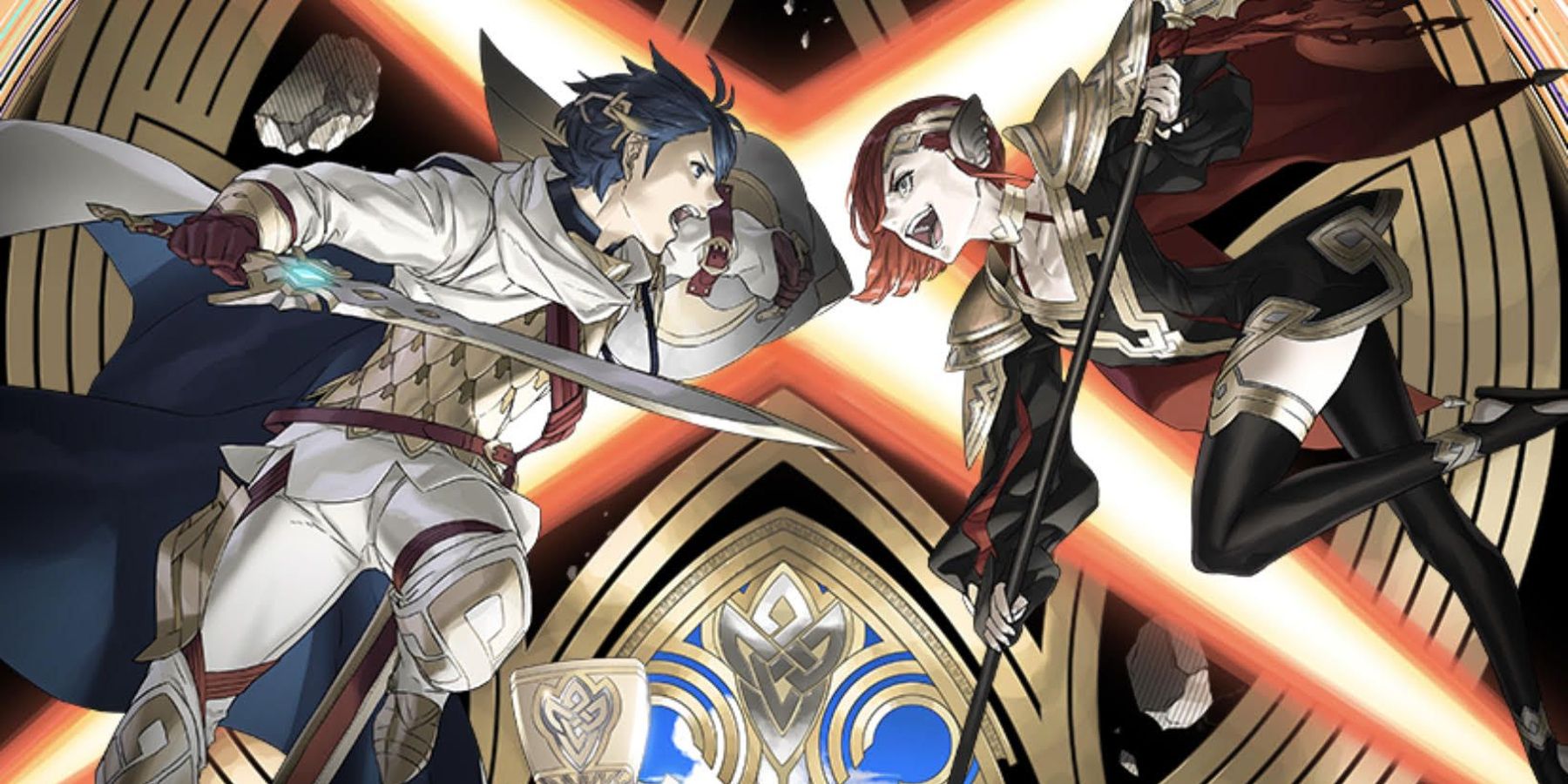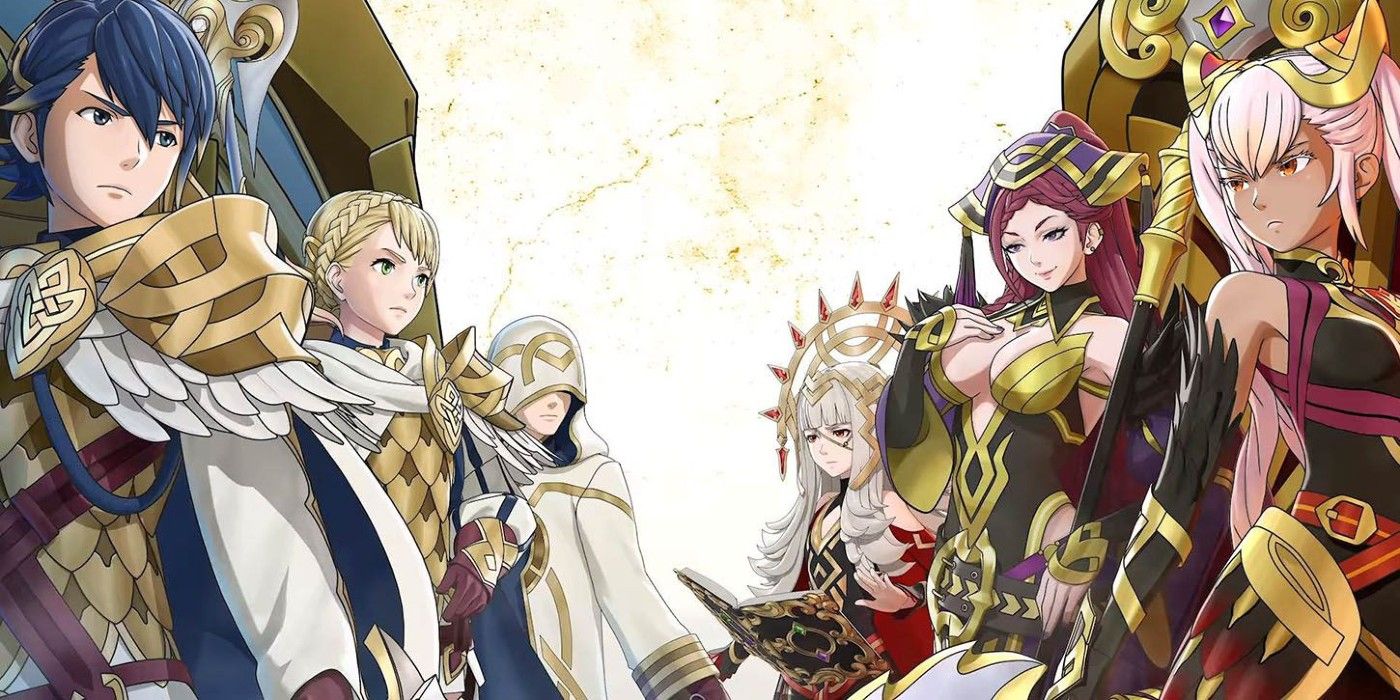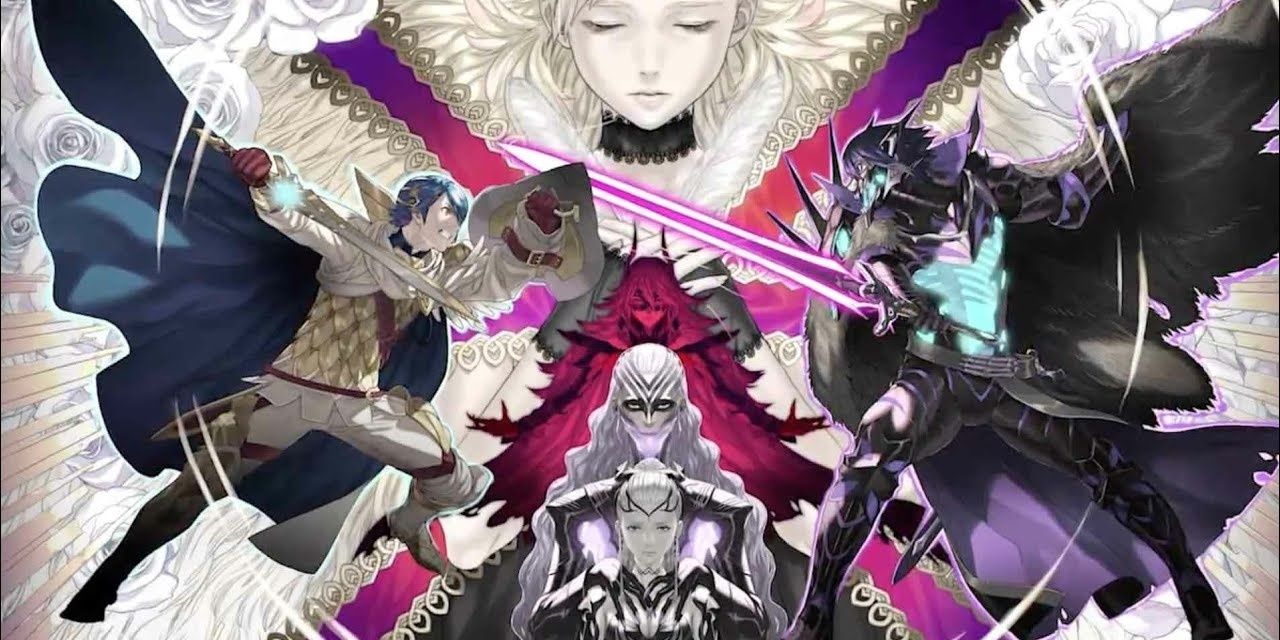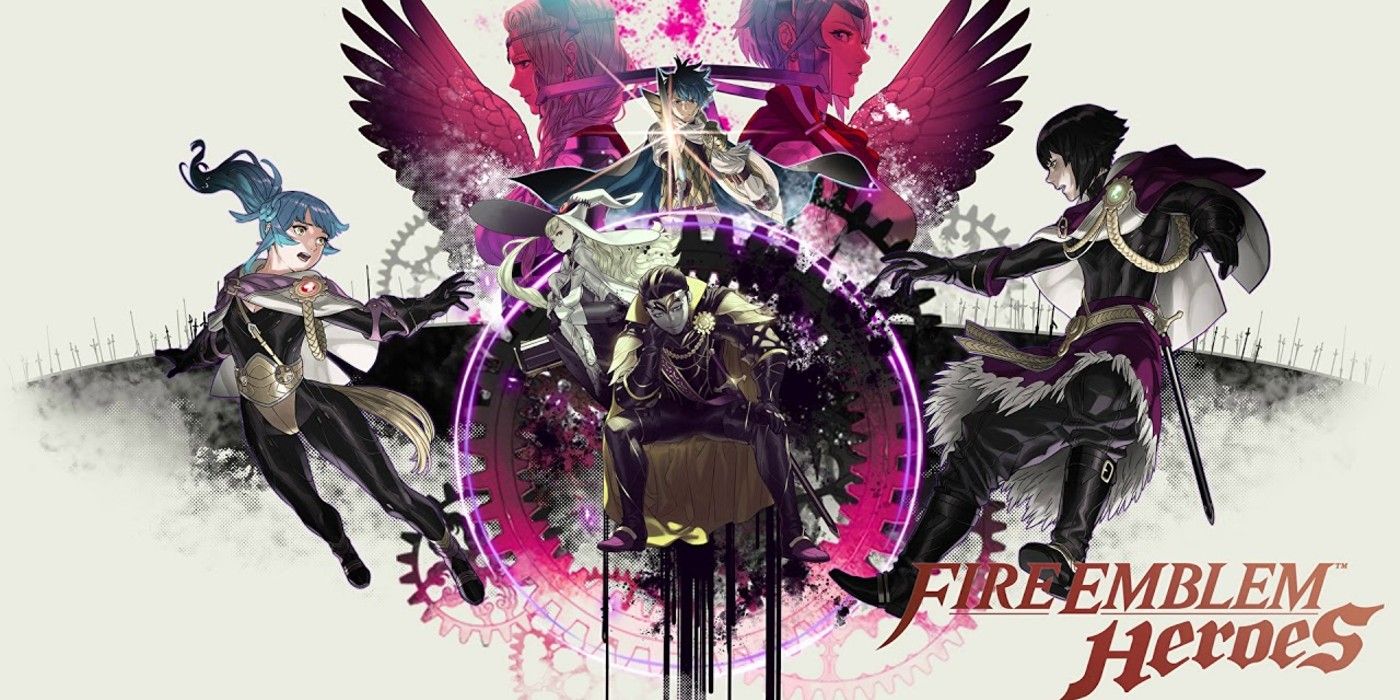Despite complaints levied against Fire Emblem for its representation in Super Smash Bros., Intelligent Systems' tactical RPGs have grown large enough to warrant some of this increased attention. Fire Emblem: The Blazing Blade on Game Boy Advance was the first title to release outside of Japan in 2003. After a steady decline in sales, the franchise saw a resurgence with Fire Emblem Awakening in 2012. It has exploded in the years since, with one example of the series' mainstream status being Fire Emblem Heroes.
Heroes is a mobile gacha game released in 2017 that acts as a celebration for the franchise, adding in characters from every title across its 30-year history including spin-offs like the Shin Megami Tensei crossover Tokyo Mirage Sessions #FE. Even if a lot of the fun comes from mixing-and-matching characters who fans know and love, Fire Emblem Heroes also has its own narrative told across contained "Books." Given how much the game has expanded while remaining popular over the last four years, it would make sense for Intelligent Systems to try a similar long-form approach in whatever game follows 2019's Fire Emblem: Three Houses.
Fire Emblem Heroes' Evolving Story So Far
The first Book in Fire Emblem Heroes acted as more of an introduction to how its crossover ideas would work. A self-insert player character is summoned to the country of Askr and joins its Order of Heroes (an expanding military troupe similar to organizations like the Shepherds in Awakening). Serving as a tactician and Summoner, able to call new heroes using the divine relic Breidablik powered by Heroes' premium currency Orbs, the player helps fend off Askr's rival Embla as it forms contracts with different characters and tries shutting down portals to other worlds.
Though it wasn't the deepest story, Askr and Embla reference the first two humans of Norse mythology. Fire Emblem Heroes' continent of Zenith then expanded to encompass more of the nine realms and other aspects of this mythology. Book 2 centered a conflict between the icy Nifl and fiery Muspell, Book 3 took the heroes to the underworld of Hel, Book 4 featured fae spirits of good and bad dreams from Ljosalfheimr and Dokkalfheimr, and Book 5 had characters in mech suits from Nidavellir and Jotunheimr.
Book 6 was unveiled in a Feh Channel update on December 5, 2021, and seems to reign things in with a story focused on the conflict between Askr and Embla again. Each nation's lords developed over the course of Heroes' Books, pushed in certain directions by recurring antagonists like the gods Thorr and Loki. Now Book 6 will delve deeper into the lore of their homelands via the introduction of Ash and Elm, retainers to the great dragons Askr and Embla, respectively.
Intelligent Systems' Approach for Heroes is Very Successful
All things considered, Intelligent Systems had a great idea for how to handle the "live-service" element of Fire Emblem Heroes. Not only are batches of new characters introduced over time (alongside holiday or alternate costume events), they prop up the ongoing narrative as forces under the control of whatever big bad exists for a particular Book. New characters can drop every few weeks to keep players on the hook summoning their favorites using microtransaction currency, which keeps the story moving at a steady pace.
Fire Emblem Heroes' success speaks for itself. Mobile market analyst Sensor Tower reported that Nintendo mobile games (not including Pokemon GO) reached a collective $1 billion in January 2020, and well over half of that was accrued by Heroes - around $656 million. Compared to the lowest contributor Dr. Mario World, which had only raised $4.8 million at that time, it's no wonder why Heroes continues going strong almost five years in but Dr. Mario World shut down after two.
The Next Fire Emblem Could Follow Heroes' Lead
While that successful ongoing format is something Intelligent Systems could bring to Three Houses' follow-up, there are many reasons why it wouldn't translate perfectly. A casual mobile game has far greater reach than any console, and its simplified mechanics make adding new content over time easier. It's also hard to say whether the gacha mechanics would work well in a strategic Fire Emblem game the same way it does for titles like Genshin Impact.
However, the next Fire Emblem game could experiment with extending its narrative using post-launch expansions. Three Houses tested the waters by adding the Ashen Wolves campaign as DLC, but this was another path in the same story rather than a continuation. If Fire Emblem Heroes is able to develop a rich world based on Norse mythology over the course of multiple years, Intelligent Systems should be able to do the same using a more developed story and smaller cast. One of the bigger issues with Heroes' story is that every Book has to stand alone as new content for players at any point in their journey, meaning major characters like Nifl's Princess Fjorm hardly show up beyond side content after Book 2.
Taking a cast more defined than those in a mobile game and letting them continue to grow or encounter challenges after the main adventure would do a lot for their development. Intelligent Systems is often criticized for some characters being more shallow than others, as well as its slow march toward inclusivity with things like same-sex relationships. Having more after the main story would provide extra breathing room to flesh everyone out more, or introduce others who fit a given niche without them being footnotes. Fire Emblem Heroes' Books are a good model to build off of, and could potentially help the next Fire Emblem game live on for years by itself.
Fire Emblem Heroes is available now on Android and iOS devices.
Source: Sensor Tower




